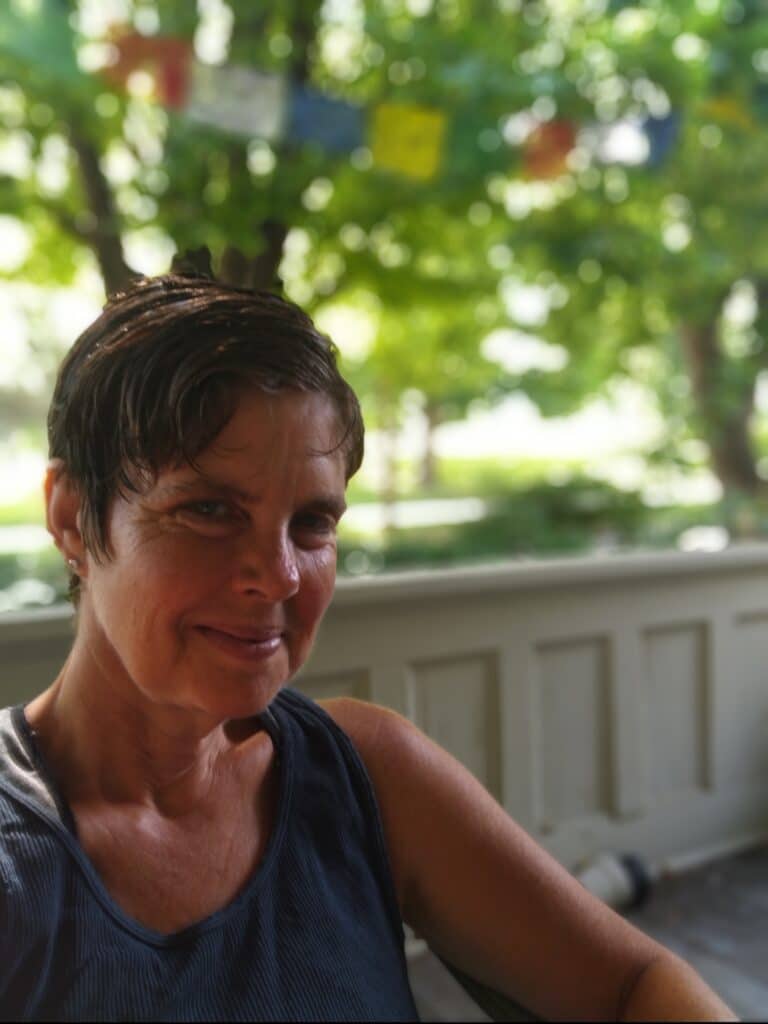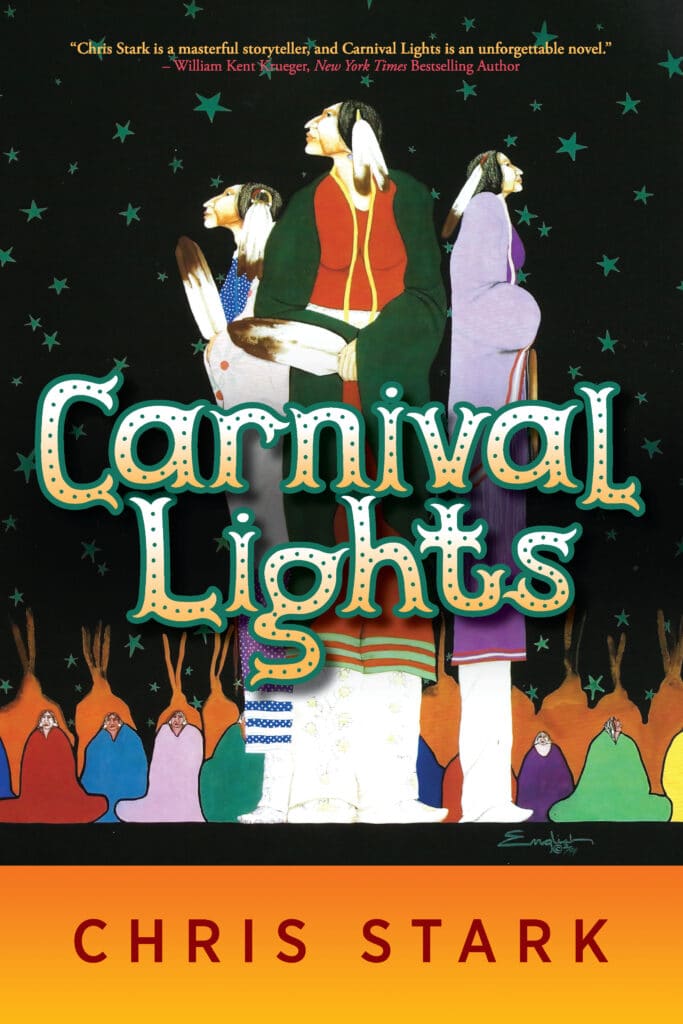Chris Stark, author of Carnival Lights
Novel & Short Story Category
Each week leading up to the 34th annual Minnesota Book Awards Ceremony, we are featuring exclusive interviews with our 36 finalists. You can also watch the authors in conversation with their fellow category finalists here.

Would you tell us one or two things about your finalist book that you are particularly proud of, and why?
I began writing Carnival Lights twenty years ago when the protagonists emerged during a writing exercise. The process of writing the book over all those years was like a slow-growing vine weaving around the protagonists’ fictional story. There are elements of the story that are based on historical events and people in Minnesota. Writing a fictional narrative that organically grew with and around actual events was a fascinating experience and created a story that is textured and multi-layered, and conveys the connections between past and present, “truth” and fiction in a unique way. I’m also pleased with how Carnival Lights conveys intergenerational love and knowledge among the Brauns, a fictional Ojibwe family. The movement between and connections among the Braun generations brings forward the love and strength of Ojibwe culture, rooted in the land, that allows them to survive the tumultuous and often brutal creation of the state of Minnesota. I’m proud of how the story of this fictional Ojibwe family shows the strength and beauty of Ojibwe culture-the cultural ways I owe my own survival and happiness to.
What do you hope that your audience learns or takes away from your book?

The story of the girls and their family members drives this book emotionally, but my hope is that Carnival Lights also impacts readers intellectually and spiritually. Historical events are woven throughout the book, which allows the reader to learn about lesser-known history of Minnesota, especially how politics, corporations, public policy, and the influx of a number of European cultures impacted Indigenous people on this land and created the creation of the culture of Minnesota. Also, through the story of the Brauns, I hope readers develop a deeper understanding and empathy for how white violence, including sexual violence, harmed Ojibwe individuals, families, and communities. I hope people also develop a deeper emotional and intellectual understanding of the roots of Murdered and Missing Indigenous Relatives here in Minnesota.
What advice would you give to an aspiring writer with an interest in your category?
Read widely, always be curious and open-minded, and listen to your heart–to the story–above all else. Stories are gifts, and as creators and conveyors of those gifts, we have to honor the story and the process of getting down those stories.
Tell us something about yourself that is not widely known.
Up until December 2021, I ran ten miles a day for seven-and-a-half years.
Minnesota enjoys a reputation as a place that values literature and reading. If this sentiment rings true for you, what about our home state makes it such a welcoming and conducive place for writers?
The Loft, university writing programs, independent bookstores, publishing houses, book clubs, theaters, and various writing grants and awards are the structure that creates and maintains Minnesota’s strong and vibrant community of talented writers and avid readers. As a writer who composes from the margins, I’m especially grateful for how Minnesota’s writing and reading community is increasingly welcoming and embracing of those of us who are members of groups that have been excluded and silenced. When discussing the trepidation I sometimes feel about writing about suppressed or ignored stories, I’ve been encouraged more than once by other writers and readers to “write it!”
Since the onset of the pandemic in early 2020, virtually everything about our lives has changed in some way. Has COVID-19 (and its fallout) impacted your writing habits and preferences? Has the unique zeitgeist of the past two years influenced your writing output in any other ways that you can pinpoint?
The pandemic provided me the opportunity to focus on finishing Carnival Lights because I lost my employment. The pandemic gave me the time to write.
Chris Stark (Anishinaabe & Cherokee) is an award-winning writer, researcher, visual artist, and national and international speaker. She facilitates art and writing groups, consults with a variety of local and national organizations, and teaches writing and literature at Central Lakes Community College in Brainerd, Minnesota.

